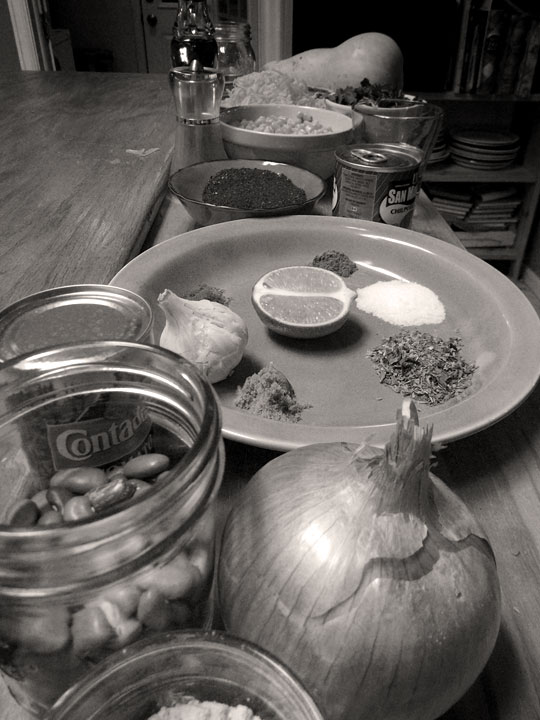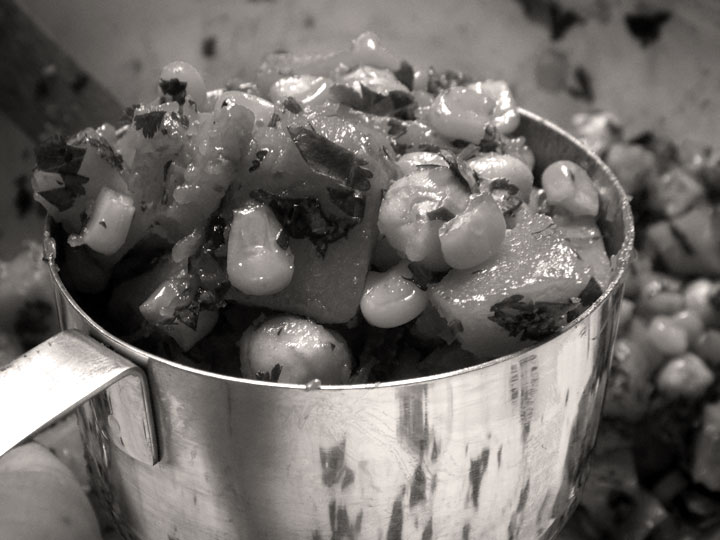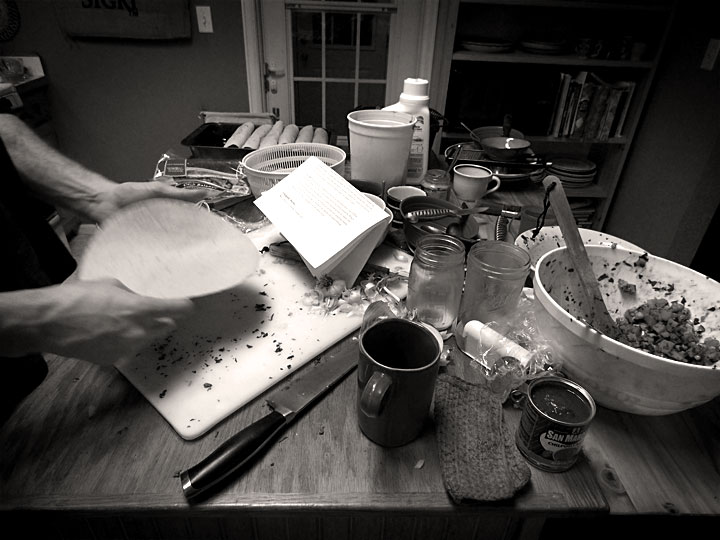My last article was in praise of the Rebar cookbook. I said more about the cookbook than the recipe, and as I prepared the dish I decided it called for another article, even if it amounted to notes.
Shopping for this dish in a small town is challenging. We can be thankful we have an “ethnic” or “Mexican cooking” section – albeit as long as a dining room table – or else the ancho powder would have been absent. Even so, I had to grind the dried peppers with a mortar and pestle.
Barbara Kingsolver wrote in Animal, Vegetable, Miracle that America has no real food culture of its own. A food culture develops around the labors and rhythms necessary to raise certain kinds of food from the ground – foods that are suited to our soils, climates, and tastes. This is how the idea of the “three sisters” came about. The corn supports the pole beans, which in turn provide nitrogen for the corn and squash, while the squash leaves vine out along the ground providing shade weed suppression.
In place of a food culture in America, we seem content to poach other food cultures and “Americanize” them into something hideous like the Nachos Navidad I saw advertised on a billboard. Mercy.
With the boys in bed I sat by the fire with my mortar and pestle and ground up 5 tablespoons of ancho powder. And it was a delight. But it took me 20 minutes. I worked till 11:00 pm preparing the meal, and I still needed two hours the following evening for final preparation and cooking. Again: mercy.
This may be a decent reason why we have no food culture. Meals are work. They take far more time than we ordinarily have.
But I will say this: I do not regret attending to those peppers. I will not forget the scent they unleashed, or the gift of time to sit in quiet and let some thoughts sift upward. I was lucky enough to grow the butternut squash I used in the dish, and I do not regret attending to that unwieldy gourd, remembering how we planted them too late and longed for a late frost.
We’re not going to legislate a food culture. We’re not going to buy it online. We’re not going to read a book about it and suddenly “get it.” If we want one, it will only come by reconnecting and recommitting our senses and ourselves to the land through labor and delight.






